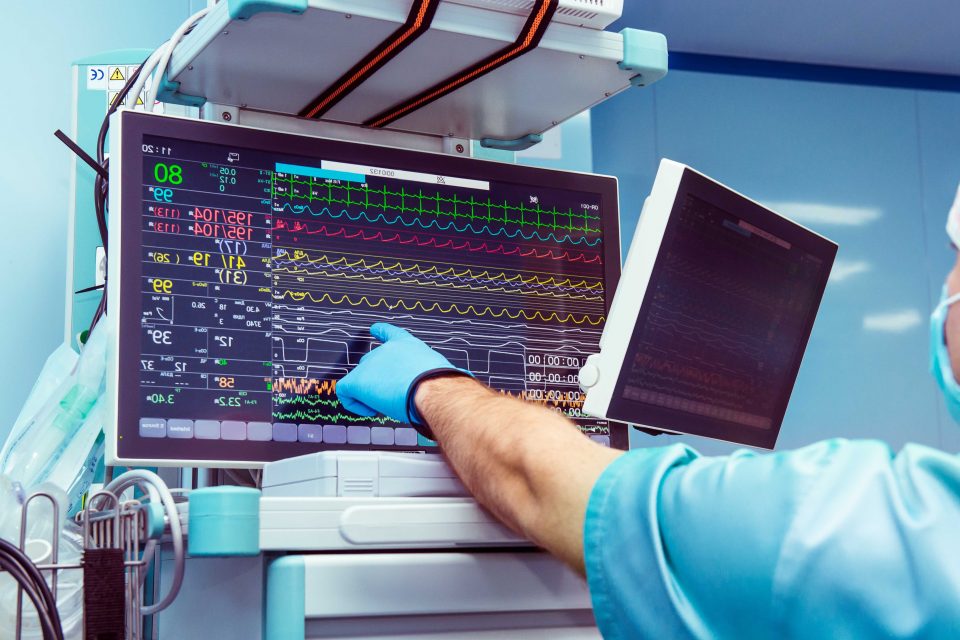With healthcare AI investments set to soar to $45.2 billion by 2027, artificial intelligence is no longer a distant innovation—it's rapidly becoming a core component of modern medical practice. AI’s ability to optimize operations, enhance clinical decision-making, and deliver tailored patient care is fundamentally reshaping how healthcare organizations approach treatment.
From AI-enabled diagnostics to personalized treatment plans, the healthcare industry is set to experience significant advancements. Let’s explore key AI trends for 2025 and beyond and their impact on the medical field.
AI Enhances Patient Monitoring and Reduces Unexpected Deaths
In hospitals, AI already helps prevent unexpected patient deaths by enabling early detection of medical emergencies. For example, at St. Michael’s Hospital in Toronto, Canada, an AI-powered system called Chartwatch has decreased unexpected deaths by 26%, as reported by CBC News. This early warning system analyzes over 100 data points from patient records—such as vital signs and lab results—to predict potential health deterioration on an hourly basis, giving healthcare teams critical time to intervene and save lives.
Key benefits of AI-driven patient monitoring:
- Proactive Interventions: Continuous monitoring detects critical issues early, enabling timely medical intervention that can save lives.
- Enhanced Nursing Support: AI complements nursing staff by providing real-time alerts, allowing clinicians to focus on patients most at risk.
- Improved Outcomes: By leveraging predictive capabilities, hospitals can reduce preventable deaths and enhance overall patient care.
This type of AI-powered monitoring system is particularly valuable in high-risk environments, where rapid detection and response can make a significant difference.
Optimizing Healthcare Operations with AI
The healthcare industry is notorious for high operational costs, with administrative expenses accounting for about 25% of the $4.3 trillion spent on healthcare annually in the U.S. AI can streamline operations by automating routine tasks and improving patient experiences, according to McKinsey.

AI applications in healthcare operations include:
- Automated Claims Processing: AI reduces the time required for claims approvals by identifying patterns, decreasing processing times, and minimizing errors.
- Conversational AI and Virtual Assistants: AI-driven chatbots handle patient queries and appointment scheduling, allowing healthcare staff to focus on more complex issues.
- Enhanced Resource Allocation: AI helps healthcare organizations optimize staff schedules and resources based on predicted patient flow, ensuring efficient operations during peak hours.
According to a recent survey, 45% of healthcare operations leaders consider AI a top priority for boosting efficiency, up from 28% just two years ago. This trend underscores a growing commitment to AI as a cornerstone of service transformation in healthcare.
Precision Medicine and AI-Driven Diagnostics
Precision medicine - tailoring treatment to individual patients based on genetic, environmental, and lifestyle factors - is one of AI’s most promising applications in healthcare. News Medical highlights how AI algorithms analyze complex datasets to improve diagnostics and develop personalized treatment plans.
Core capabilities of AI in precision medicine:
- Predictive Modeling: AI algorithms predict disease outcomes and treatment responses, allowing clinicians to develop personalized care plans for conditions like diabetes, heart disease, and cancer.
- Interdisciplinary Approach: AI integrates data from various domains, including genomics and lifestyle factors, for a comprehensive view of patient health.
- Explainable AI Models: Transparent AI models provide clinicians with the data and reasoning behind treatment recommendations, building trust and enabling more informed decision-making.
According to the Precision Medicine Initiative, patients treated with tailored healthcare solutions experience a 34% increase in treatment efficacy, emphasizing the potential of AI-driven diagnostics to revolutionize medical care.
Multimodal AI for Comprehensive Patient Insights
Understanding patient health history requires integrating various data types—from medical imaging to genomic data. Microsoft’s Cloud for Healthcare bridges this gap with multimodal AI, which combines diverse datasets for deeper insights. Models like MedImageParse enable precise imaging analysis, identifying potential issues across x-rays, MRIs, and CT scans.
Advantages of multimodal AI in healthcare:
- Enhanced Diagnostic Accuracy: Multimodal AI can detect abnormalities across various imaging types, aiding in quicker and more accurate diagnoses.
- Streamlined Workflows: Automating image analysis helps radiologists focus on more complex cases, improving efficiency and reducing turnaround times.
- Data Integration: By connecting diverse data sources, multimodal AI enables more personalized care, uncovers hidden correlations, and enhances predictive accuracy.
Microsoft’s AI solutions demonstrate how multimodal technology can transform patient care by integrating data across imaging, pathology, and genomics, ultimately setting a new standard for healthcare technology.
Looking Ahead: Embracing an AI-Powered Future in Healthcare
As healthcare organizations continue to adopt AI, the future holds immense possibilities. The impact of AI spans beyond saving lives; it includes operational efficiency, personalized patient care, and groundbreaking medical research. However, as McKinsey notes, the adoption of these technologies requires robust data management, privacy compliance, and an agile approach to navigate legacy infrastructure challenges effectively.
Ready to explore how AI can transform your healthcare organization? Contact us to learn more or join the conversation below to share your insights on how AI is reshaping the healthcare landscape.






